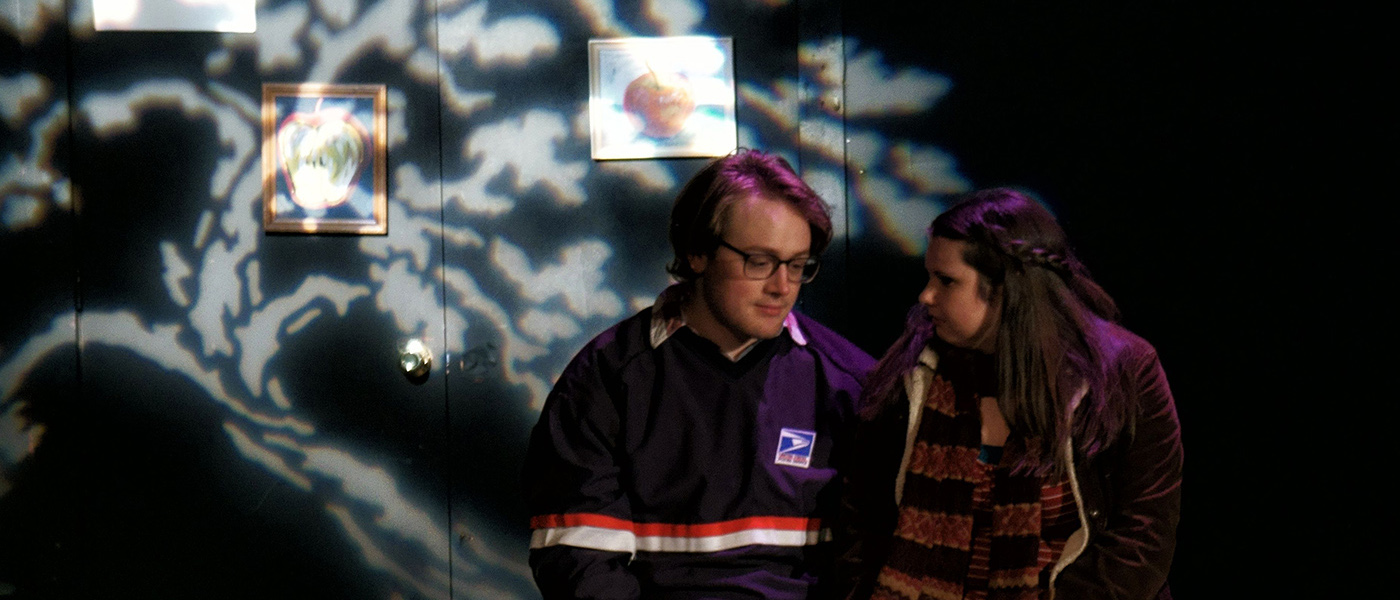
Sarah Treem’s a feminine ending is the East End Theatre Company’s first-ever production. After seven years spent dreaming of doing this play, I can’t deny that it was the main impetus for creating my theater company. Because Treem’s work is overwhelmingly underdone, the most common reaction I encountered in the audience post-show was “Why have I never heard of Sarah Treem?! Why isn’t her work done everywhere?” Of course, people have probably experienced the splendor of Treem’s writing without knowing it. She’s written for House of Cards, The Affair, and In Treatment. But without camera angles, dramatic close-ups, and establishing shots, there can be more focus on Treem’s words.
a feminine ending centers around Amanda, a twenty-five-year-old aspiring composer who has hit a wall. Despite being dedicated to music since childhood, nothing is happening in her career. She’s experiencing writer’s block with her symphony and is continually the runner-up to her male classmates when it comes to concert selections. Meanwhile, in the background, Amanda’s fiancé seems to stumble into pop stardom with little thought or effort. While he’s reading fan mail and attending swanky showbiz dinners with his manager, Amanda’s day job is slowly eclipsing her art, and her fear of failure is growing.
In both her opening and closing monologue, Amanda describes the use of masculine versus feminine beginnings and endings in music. In short, a masculine piece has a point; a feminine movement is indirect and weak. She also points out that the French, with their gendered nouns, only allow men to be composers. The world, and music itself, seems to be working against her. This is an all-too-familiar feeling for most female composers.
As we discussed the history of female composers, our stage manager presented a heartbreaking quote from Clara Schumann. One of the first of her kind, Schumann made her composing debut in 1830 at eleven years old. She even studied under the same music teacher as Richard Wagner. In 1840, she married fellow composer Robert Schumann, and shortly afterward found most of her time dedicated to their family and Robert’s music. Self-doubt crept in, as well as societal pressure to be a “true lady.” And so it was that she wrote in her diary, “I once thought that I possessed creative talent, but I have given up this idea; a woman must not desire to compose — not one has been able to do it, and why should I expect to?”
In a feminine ending, Amanda suffers from similar feelings throughout the play. “Name a female composer. Name one,” she challenges her father, David. “I can’t,” he says. “See?” she scoffs with sad satisfaction.
Besides her musical struggles, Amanda hasn’t yet found herself, and many of her actions are executed blindly, always with the hope that this will be the decision that solves everything. In the second movement (as scenes are labelled), Jack proposes to Amanda. Though there is no evidence that she loves him, she accepts excitedly. This is step one toward the extraordinary life she’s always dreamed of! So why are her parents so distressed at her engagement? “Do you know how many people would kill to marry Jack?” Amanda asks her mother, Kim. “So let one of them!” Kim exclaims. “Not you! You go live a life!” Amanda counters that Jack is the way to have the extraordinary life she wants: a handsome rock star with musical connections and a trust fund that offers security. And while she may not truly love him, his love gives her validation, and shouldn’t that be good enough? Amanda has accepted that she can’t check every box, but crossing off most of them will probably suffice.
At least, that’s her frame of mind until she visits her parents and runs into her high school flame. Literally. With her car. Billy hasn’t changed much since high school, and sitting together in their teenage hangout, Amanda realizes she’s underestimated her small-town ex; he’s not only smarter than she thought, but that pedestal he put her on when they were fourteen? She’s still up there. Where Jack leans on Amanda for support, Billy holds her up. He remembers her goals and believes that she can reach them. Being in a place she used to love with the man she used to love, it dawns on her — maybe this is the answer. If she was happy here before, maybe she’d be happy here again! The next scene cements that idea. Kim not only disapproves of Jack, but is woefully unhappy in her own marriage and determined to get out. She names a long list of goals she never got to achieve, and when Amanda asks if she should go forward with her engagement, Kim replies, “It’s not the decision I would have made if I had to do it over again.”
Sure she’s finally got it figured out, Amanda marches to Billy’s door and asks him if he wants to be romantically involved. He’s startled, but she explains her epiphany: why else would she be so happy and inspired with him and so sad with Jack in New York? Why would she choose an oblivious rock star over a sweet, small-town guy who loves her? This scene shows us a much more optimistic Amanda than we see in the rest of the play. “There’s something about the people who knew you when you were young, before you had decided who you wanted to be,” she babbles. “They’re the only ones who really know you, you know?” She’s finally found the answer, the way to get back to the passion she used to feel for life and music.
At least, that’s what she thinks until Billy rejects her. “Come on,” he chuckles. “You really want to move back to New Hampshire and bear the fruit of my loins?” It’s a heartbreaking moment, watching while Amanda’s backup plan shatters right in front of her. If the answer isn’t being a supporting character in Jack’s life, and it’s not living the American Dream with Billy, what is it? “I’m so sad,” Amanda says to her father that same night. “Why am I so sad? I’m too young to be sad.” When he tells her he’s been where she is, that’s she’s just scared, Amanda snaps, “You were a young man. It’s not the same thing.”
And so Treem reminds us that the underlying problem still lurks: could it be that, no matter how hard Amanda works, or how talented she is, she will always come in second, simply for being female? After all, not only does a musical feminine ending immediately imply weakness, but its literary equivalent is depressingly labelled a “dying rhyme.” These are artistic techniques that have been around for centuries; the chance of change is slim. And if our examples of musical talent are almost exclusively men, what happens if a woman tries to elbow her way in and make her voice heard? David suggests, “There’s one significant difference between you and Bach and Beethoven. Those men are dead.” Amanda responds to this with fear: What if she’s not good enough? What if she fights the good fight and still ends up losing? “You die, too,” her father shrugs. “But […] if you’re so good you exceed everyone’s wildest expectations — same deal.”
In that moment, Amanda seems paralyzed with fear. She’s at a huge crossroads, and she’s only twenty-five; whatever decisions she makes now will influence the next sixty years. Despite her misgivings, Amanda makes her first change: she breaks off her engagement. Despite another rejection letter, she turns back to her unfinished symphony with renewed vigor. Because she’s only twenty-five. Whatever decisions she makes now may influence the next sixty years. And it just
might be that the second draft of a symphony is even more extraordinary than the first.
To purchase a copy of A Feminine Ending click here, and to learn more about licensing a production, click here.

Newly Available for Licensing – January 2026 (UK)

Newly Available for Licensing – January 2026 (US)

